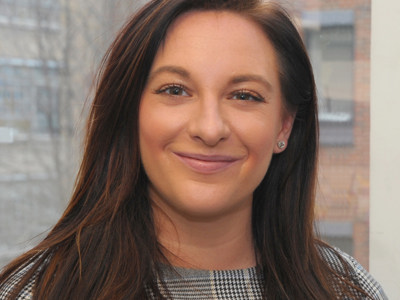
Continuity needed to ensure adults with cerebral palsy enjoy maximum independence
Frankie Rhodes discusses the NICE guidelines and how they highlight the need for continuity to ensure that every adult with cerebral palsy can enjoy maximum independence
Posted on 15 April 2019
The National Institute for Health and Care Excellence (NICE) published a new set of guidelines at the beginning of the year to address the lack of consistency in the delivery of services for adults with cerebral palsy.
Cerebral palsy is a well-known disability that affects movement and coordination, caused by a problem with the brain that occurs before, during or soon after birth. With improvements in treatment for the condition comes increased life expectancy, resulting in more complex care needs over a number of years which need to be met.
The aim of the NICE guidelines is to ensure that individuals have access to the right support, by giving direction to not only family members but healthcare professionals, social care practitioners and those involved in planning services.
What do the guidelines say?
The guidelines include recommendations in relation to the following:
- There should be access to a local network of care including learning disability and mental health services, specialist neurology, physiotherapy and occupational services and rehabilitation;
- Barriers to accessing care services or being involved in activities, such as carers with insufficient training, social factors such as fear of stigma and physical difficulties including inability to access buildings, should be recognised and addressed;
- There should be support with communication and awareness that speech and communication needs in adults with cerebral palsy may change with time and social circumstances;
- There must be help with vocational skills and physical activity to encourage individuals to engage with their environment and maintain general fitness;
- It is important to have discussions as to the potential role of electronic assistive technology where there are problems with participation and independence;
- The review process should be tailored to fit the needs of the individual, with regular contact to ensure the reviews are of an appropriate frequency and involving the necessary services;
- Those who wish to live independently should be offered advice from a professional with expertise in this area, including discussions as to the adaptations that may be required.
Why is this important?
There are ongoing problems with continuity of care, particularly in the transition of cerebral palsy sufferers from children to adulthood.
Adults with cerebral palsy have a vast range of disabilities and it is vital to ensure that they can achieve the best quality of life possible, regardless of the level of support they need.
Many cerebral palsy sufferers may wish to proceed with further education and pursue careers. It is encouraging to see the rise of actors and comedians with disabilities, such as James Moore, who won Best Newcomer at the National Television Awards this year for his part in Emmerdale. Comedian Rosie Jones, who also has cerebral palsy, plays on her audiences’ expectations about disability in her comedy show entitled ‘Fifteen Minutes’ in reference to the period of time that she was starved of oxygen at birth.
In order for those with disabilities to have equal access to opportunities it is essential for the NICE guidelines to be implemented across the UK. There are clear areas of improvement which must be effected reliably to avoid disparity between different local authorities and service providers.
We welcome these plans to improve the current system and increase the availability of vital resources for those with cerebral palsy. There is no doubt that this will be beneficial for individual’s health and wellbeing.
We are proud to support the Patient’s Association, who are committed to improving this experience by working with social care providers covering assistance for patients in care home settings as well as their own homes.
We know from the work that we do how important it is for people with cerebral palsy and their families to engage with the relevant specialists to ensure that they are receiving the support they need.


